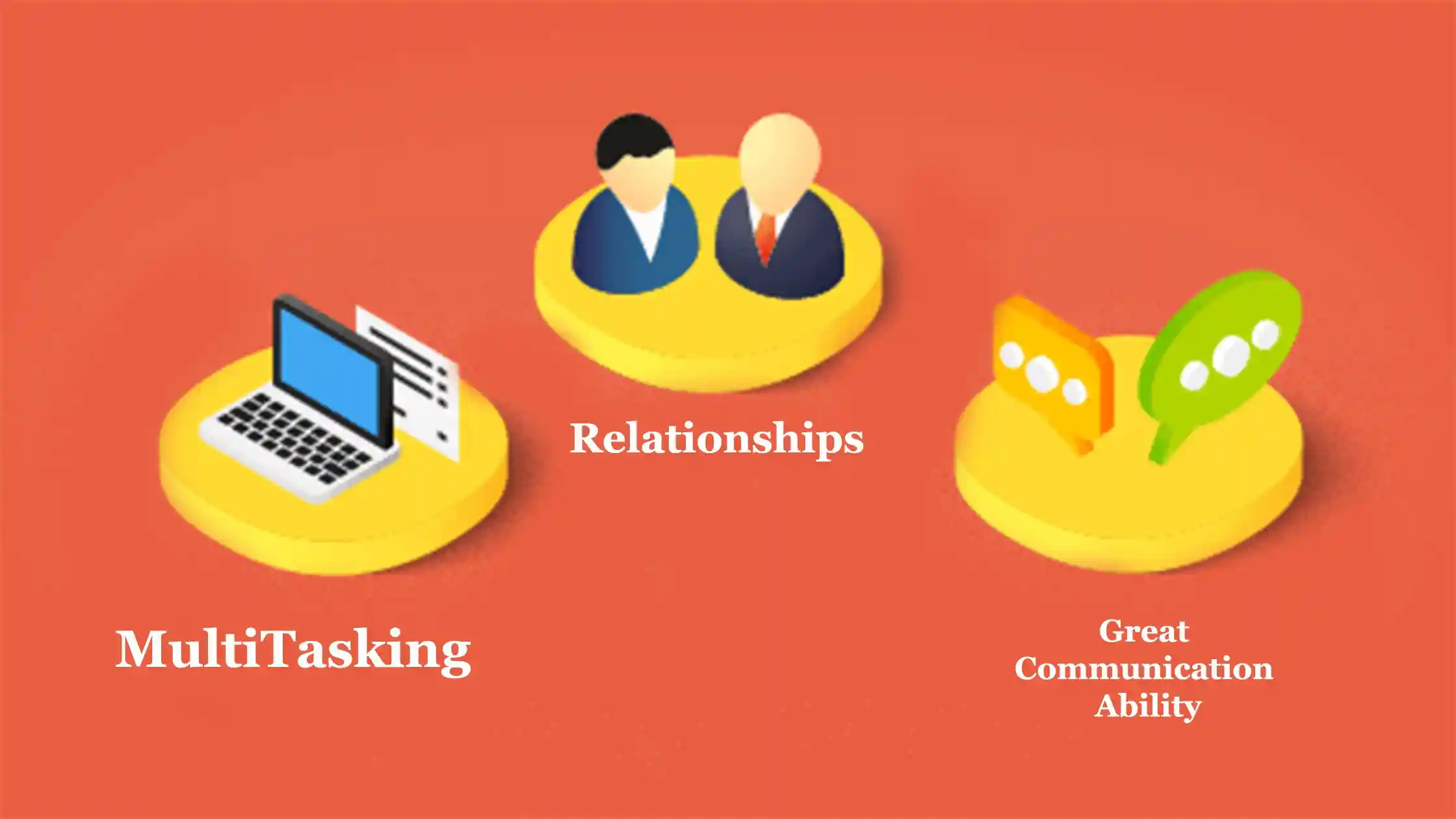TL;DR
- Exceptional recruiters combine strong interpersonal skills with technological proficiency to enhance hiring outcomes.
- Core skills include effective communication, talent sourcing expertise, and culturally aligned candidate assessment.
- Building and maintaining professional networks, industry specialisation, and business acumen are critical for recruitment success.
- Proficiency in recruitment technologies and data-driven approaches improves efficiency and accuracy in hiring processes.
- Emotional intelligence, resilience, and continuous professional development distinguish top recruiters.
- Successful recruiters focus on long-term client partnerships and measurable quality metrics.
- Soft skills such as negotiation, time management, problem-solving, and ethics underpin recruitment excellence.
In today's competitive talent landscape, the difference between ordinary and exceptional recruitment outcomes often lies in the calibre of the recruiter. As HR professionals and staffing specialists, you understand that finding the right talent isn't merely about matching CVs to job descriptions; it's about identifying individuals who can truly transform organisations and drive business success.
The recruitment industry has evolved dramatically, with technological advancements reshaping traditional hiring practices whilst simultaneously emphasising the irreplaceable human element that skilled recruiters bring to the table. Whether you're evaluating your current recruitment team, seeking to enhance your own capabilities, or establishing benchmarks for excellence within your organisation, understanding what separates good recruiters from great ones is paramount to your success.
This comprehensive guide explores the essential skills, traits, and competencies that define exceptional recruiters in today's dynamic employment market. From fundamental interpersonal abilities to cutting-edge technological proficiency, we'll examine the multifaceted nature of recruitment excellence and provide actionable insights that can elevate your hiring outcomes.
What Are the Core Skills Every Good Recruiter Must Have?
Successful recruitment professionals master fundamental competencies that enable them to excel in talent acquisition. These core recruiter skills form the foundation of recruitment excellence and directly impact hiring success rates.
Communication Skills and Active Listening Abilities
Effective communication forms the foundation of successful recruitment. Outstanding recruiters demonstrate exceptional verbal and written communication skills, enabling them to articulate job requirements clearly whilst building rapport with candidates and hiring managers alike.
Active listening extends beyond hearing words; it involves understanding subtext, identifying unspoken concerns, and recognising when candidates might be withholding crucial information. Research shows that 89% of hiring failures occur due to poor cultural fit rather than lack of skills, highlighting the critical importance of sophisticated communication abilities in recruitment success.
According to Insight Global's AI Hiring Survey Report, 99% of organisations now use AI in some capacity during their hiring process, yet human communication skills remain irreplaceable for building trust and assessing cultural alignment.
Talent Sourcing and Candidate Research Expertise
Exceptional recruiters excel at sourcing candidates through multiple channels, including job boards, social media platforms, professional networks, and industry-specific communities. They utilise advanced Boolean search techniques and maintain comprehensive databases of potential candidates.
Modern talent sourcing requires proficiency in LinkedIn recruiting strategies, emerging social platforms, and passive candidate engagement techniques. Research indicates that 73% of successful placements now originate from passive candidate engagement rather than active job seekers.
Furthermore, MSH's 2026 recruitment trends research reveals that artificial intelligence will handle 95% of initial candidate screening by 2026, making strategic human oversight and relationship building even more crucial for exceptional recruiters.
How Do Good Recruiters Assess Candidate Quality?
Candidate assessment separates good recruiters from average ones. Professional recruiters employ sophisticated evaluation techniques to identify candidates with both technical competencies and cultural alignment.
Interview Skills and Behavioural Assessment Techniques
Professional recruiters employ sophisticated interview methodologies that reveal authentic candidate capabilities whilst maintaining a positive candidate experience. They utilise behavioural interviewing techniques, competency-based assessments, and situational judgement evaluations to predict candidate success accurately.
Structured interviews improve hiring accuracy by up to 81% compared to unstructured conversations, according to Harvard Business Review research. Good recruiters design interview processes that balance thorough evaluation with engaging candidate interaction.
Cultural Fit Evaluation and Team Dynamics Assessment
Evaluating cultural alignment represents one of the most challenging recruitment skills. Exceptional recruiters develop keen insight into organisational cultures, team dynamics, and environmental factors that influence employee success and retention rates.
This involves understanding not just what candidates can do, but how they prefer to work, their communication styles, leadership approaches, and adaptability to organisational change. The best recruiters create comprehensive candidate profiles addressing both technical competencies and cultural compatibility.
What Makes a Recruiter Excel at Building Professional Networks?
Network building distinguishes exceptional recruiters from those who struggle with candidate sourcing. Good recruiters understand that recruitment success depends heavily on maintaining strong professional connections across industries.
Relationship Management and Partnership Development
Outstanding recruiters function as relationship managers rather than transactional facilitators. They invest time building authentic connections with candidates, hiring managers, and industry professionals, creating valuable networks that extend beyond immediate hiring needs.
These professionals maintain regular contact with placed candidates, monitoring career progression and job satisfaction levels. They also cultivate relationships with hiring managers, understanding evolving needs and providing strategic workforce planning advice.
Industry Expertise and Sector Specialisation
The most effective recruiters develop deep expertise within specific industries or functional areas. This specialisation enables them to understand technical requirements, industry challenges, and career progression paths that general recruiters might overlook.
Specialised knowledge allows recruiters to have meaningful conversations with senior-level candidates, ask relevant technical questions during interviews, and provide valuable career guidance that enhances their professional credibility and recruitment effectiveness.
How Important Are Technology Skills for Modern Recruiters?
Technology proficiency has become essential for recruitment professionals in 2026. Good recruiters leverage advanced recruitment technologies to streamline processes and improve hiring outcomes.
1. ATS Proficiency and Recruitment Technology Integration
Modern recruitment demands proficiency across multiple technology platforms. Exceptional recruiters maximise Applicant Tracking System potential through:
- Advanced candidate pipeline management and tracking
- Automated communication sequences and follow-ups
- Performance analytics and reporting capabilities
- Integration with social media and job board platforms
They stay current with emerging recruitment technologies, including AI-powered screening tools, video interviewing platforms, and predictive analytics solutions that enhance hiring efficiency and accuracy rates.
2. Data Analytics and Performance Measurement Capabilities
Data-driven recruitment has become essential for demonstrating value and optimising hiring processes. Outstanding recruiters track key performance indicators, including time-to-fill metrics, quality of hire measurements, candidate satisfaction scores, and retention rates.
Organisations using data-driven recruitment strategies achieve 70% higher placement success rates and 23% lower turnover among new hires compared to those relying solely on intuitive approaches. Additionally, Korn Ferry's Workforce Survey found that 67% of employees would remain with a company if offered advancement opportunities, emphasising the importance of recruiters understanding career development pathways.
Why Is Emotional Intelligence Crucial for Recruitment Success?
Emotional intelligence differentiates good recruiters from exceptional ones in today's candidate-driven market. Professional recruiters with high emotional intelligence build stronger relationships and create positive experiences for all stakeholders.
Empathy and Candidate Experience Management
Exceptional recruiters demonstrate high emotional intelligence, understanding that the recruitment process significantly impacts candidates' perceptions of potential employers. They manage candidate expectations transparently, provide timely feedback, and maintain professional relationships even when placements don't materialise.
The ability to deliver difficult news diplomatically whilst preserving relationships requires considerable emotional maturity and professional expertise that distinguishes good recruiters from average ones.
Resilience and Market Adaptability
Recruitment involves frequent rejection, changing client requirements, and market volatility. Outstanding recruiters develop resilience that enables them to persist through challenging periods whilst maintaining optimism and professional standards.
They adapt their recruitment approaches based on market conditions, economic factors, and industry changes, demonstrating flexibility that ensures continued success regardless of external circumstances affecting the job market.
What Business Skills Do Top Recruiters Possess?
Business acumen elevates good recruiters from service providers to strategic partners. Professional recruiters who understand commercial objectives provide more valuable insights to their clients.
Client Relationship Management and Strategic Understanding
Exceptional recruiters function as business partners rather than service providers. They invest time understanding client organisations through:
- Analysing strategic objectives and growth plans
- Understanding competitive challenges and market position
- Identifying workforce planning needs and skill gaps
- Aligning recruitment strategies with business goals
This business acumen enables them to make recruitment recommendations that align with broader organisational objectives, positioning recruitment as a strategic function rather than an administrative necessity.
Market Intelligence and Competitive Awareness
Outstanding recruiters maintain comprehensive awareness of market conditions, salary trends, and competitive dynamics within their specialisation areas. They provide clients with valuable market intelligence that informs hiring strategies and compensation decisions.
This expertise positions them as trusted advisors who contribute to strategic workforce planning discussions and long-term talent acquisition strategies that drive business success.
How Do Good Recruiters Ensure Continuous Professional Development?
Learning and Skills Enhancement
The recruitment landscape evolves rapidly, with new technologies, legal requirements, and market dynamics constantly emerging. Exceptional recruiters commit to continuous learning through professional development programmes, industry certifications, and networking events.
They stay informed about employment law changes, diversity and inclusion best practices, and emerging recruitment methodologies that enhance their effectiveness whilst ensuring compliance with evolving regulatory standards.
Industry Knowledge Updates and Trend Awareness
Professional recruiters regularly update their knowledge of industry trends, emerging technologies, and changing candidate expectations. They participate in recruitment conferences, webinars, and professional associations that provide insights into best practices and innovative approaches.
What Metrics Define Recruitment Excellence?
Outstanding recruiters focus on quality metrics that demonstrate long-term value:
- Quality of hire measurements: Candidate retention rates, performance reviews, and career progression
- Client satisfaction indicators: Hiring manager feedback scores, repeat business rates, and referral generation
- Efficiency metrics: Time-to-fill averages, interview-to-offer ratios, and candidate pipeline conversion
- Relationship longevity: Long-term client partnerships and candidate network growth
These professionals understand that sustainable success requires building a reputation for quality rather than quantity, leading to increased referrals and repeat business from satisfied clients and candidates.
Client Satisfaction and Partnership Longevity
The most successful recruiters develop long-term partnerships with clients, becoming their preferred talent acquisition partners across multiple roles and departments. This relationship longevity demonstrates consistent value delivery and professional excellence.
Regular client feedback sessions, performance reviews, and strategic planning discussions characterise these professional relationships, ensuring continued alignment and mutual recruitment success.
Essential Soft Skills for Recruitment Success
Good recruiters master these critical interpersonal abilities:
- Negotiation expertise: Securing acceptable terms whilst managing expectations from all parties
- Time management: Handling multiple candidates and opportunities simultaneously with prioritisation systems
- Problem-solving creativity: Developing innovative solutions for unique challenges and difficult market conditions
- Ethical standards: Maintaining transparency, confidentiality, and professional integrity throughout recruitment processes
These soft skills enable recruiters to navigate complex situations whilst maintaining positive relationships with candidates and clients alike.
Conclusion: Building Recruitment Excellence
A good recruiter does far more than screen and place. The best combine people skills, sound business judgement, and smart use of technology to deliver hires that last. They act as strategic partners, balancing commercial goals with genuine care for candidates. For HR and staffing leaders, building these competencies is a direct investment in stronger hiring outcomes. As the market evolves, recruiters who master these skills will stand out and drive lasting success.
Frequently Asked Questions (FAQs)
1. What defines a successful recruiter?
A successful recruiter understands client needs, builds strong relationships, uses recruitment technology effectively, and ensures a positive candidate experience.
2. How can recruiters improve their communication skills?
Recruiters can improve communication by practising active listening, asking relevant questions, and providing timely feedback.
3. What role does technology play in modern recruitment?
Technology streamlines sourcing, screening, and hiring. Tools like ATS software and recruitment automation save time and improve accuracy.
4. How do recruiters find passive candidates?
They use social media sourcing, networking events, and talent pools to connect with candidates who are not actively applying but may be open to new roles.
5. Why is adaptability important for recruiters?
Adaptability allows recruiters to respond to market changes, shifting job requirements, and evolving hiring technology.













